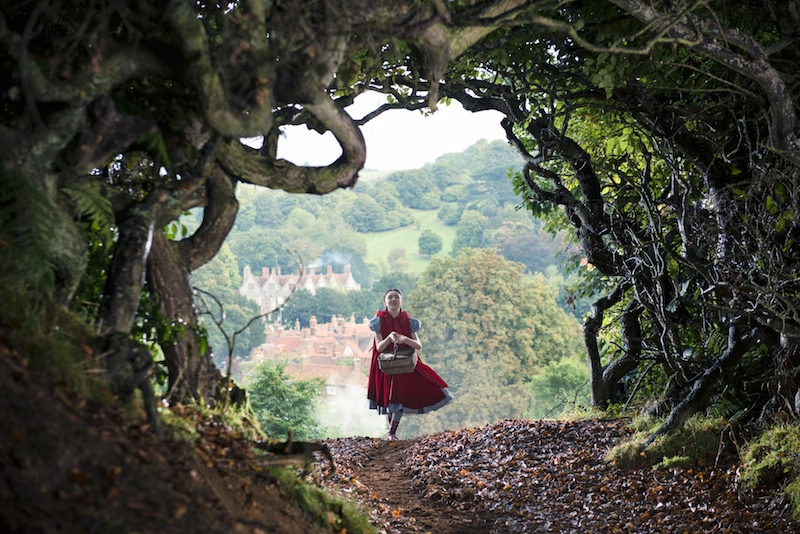Into the Woods has been a point of concern to everyone who knows the show since the Disney and Rob Marshall set out to make it happen as a film. Why? Let’s just say there are many aspects to the tale that are not exactly Disney-friendly, particularly in regard to how Disney does fairy tales. And while it’s good to find they didn’t abandon the ugliness of that world altogether, they do pull enough punches to make it irritating.
Some minor spoilers for the film below.
To the uninitiated, a word on structure—Into the Woods (the show) operates on a very clever format; the first act of the musical observes several intertwining fairy tales and ends with everyone getting their “happily ever after.” The second act picks up where the happy ending leaves off and proves that the world is rarely so pat. Of course, a film doesn’t have acts, but the separation of these two parts of the story is part of what makes it such an excellent deconstruction of well-known tropes and tales.
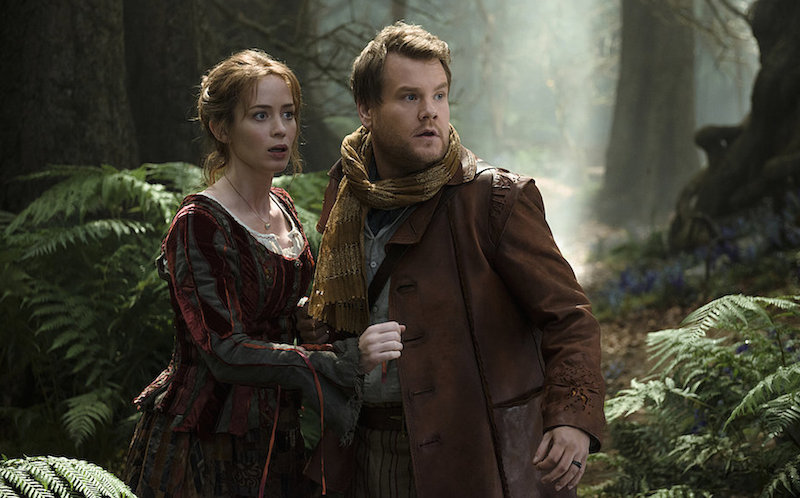
The problem is that the movie spends such a wonderfully long time on the first act material, only to skimp on the second act. Whether it was for the sake of time (the film is only two hours, but the show typically runs over two-and-a-half) or because the studio execs were nervous about some of the darker aspects of the narrative, the result offers a version of the show that feels more like supplemental reading. A cliff notes version, if you will.
It is probable that most audience members unfamiliar with the musical won’t notice these gaps, but that’s an honest shame… because they’re missing out on one of the best commentaries on fables and fairy tales that western culture has to offer. That being said, it’s a fun ride for people who know the show because they can fill in what’s missing. The film is beautifully done—the costumes, the sets, the special effects. If you have a sensitivity to auto-tuning, parts of the music will have you grinding your teeth, and it’s a shame that they felt the need to use it at all because the cast clearly can sing. And allowing Jack and Little Red to be off-key on occasion would perhaps play more realistically because they’re children.
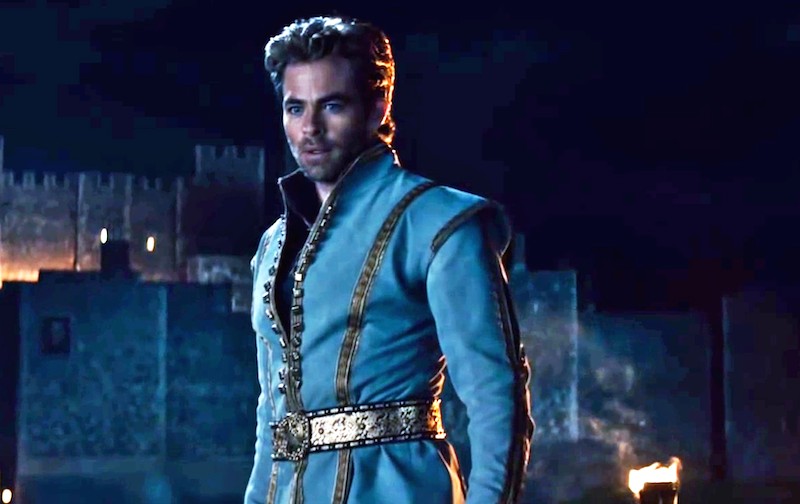
The cast lovely all around, but there are certain members who stand out—Meryl Streep is perfection as always, and Anna Kendrick is an utterly charming Cinderella. Christine Baranski was destined to play the wicked stepmother, and she and both her daughters are nothing but laughs all around. Chris Pine practically steals the movie whenever he’s on screen as Prince Charming, and the films rendition of the duet he sings with his brother, “Agony,” may be the best version ever received. (Can I count this as Star Trek canon? I can, right? He’s Kirk-like enough for me…) Those who were concerned about Johnny Depp’s presence as the Big Bad Wolf need not worry. He plays is part (quite well) and is gone.
One of the film’s most confusing aspects is bound up in how Rob Marshall chose to stage each musical number. When he directed Chicago there was a very clear sense of “where the stage was”: when the songs were in the character’s heads, when we were seeing an abstracted version of events via music, when the songs were just part of everyday life. In Into the Woods this is clear at the opening, but starts getting fuzzy by the end. And there are certain key plot moments that get ghosted over as well, which may have seemed small to the production crew, but generate real disconnects. (Following “Last Midnight,” arguably the show’s most powerful number, I actually heard someone in my theater saying, “What the hell just happened?”) The timeline of the film is compressed awkwardly as well, forcing everything to occur before anyone has a chance for their actions to sink in.
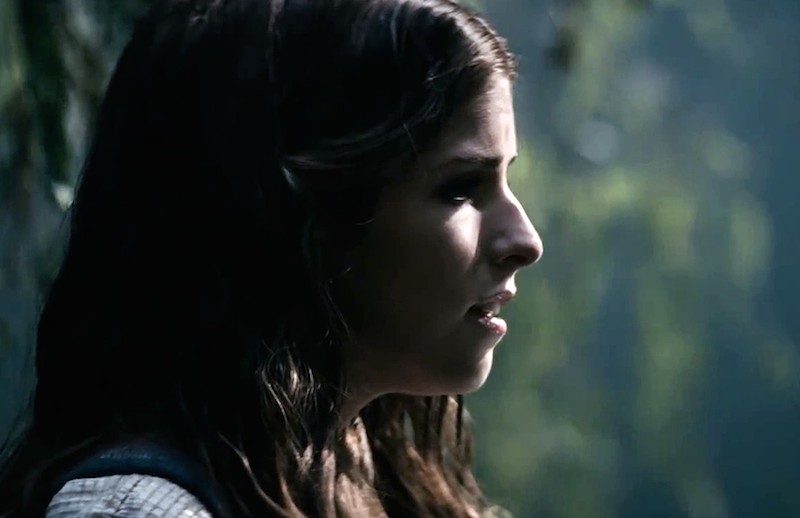
Disney clearly did put their hands in where some important decisions were concerned. And while it didn’t result in a complete turn-around for the show’s message, it did take the bite out of the story’s bottom line. One major character death is outright avoided, one incident of severe moral objectionability is made less objectionable in action if not intention. It would seem that there were certain particulars that the studio simply refused to portray outright. Unfortunately, it leads to precisely what every fan of the show was afraid of—a film that refuses to be as punishing and true as its source.
Basically all of the musical reprises are removed from the story, which is another way in which the latter half of the film starts to thin out. It also leads to a very unfortunate ending sequence where the final “Into the Woods” reprise is only used for the credits. While it might have been understandably difficult to insert without figuring out ways to get most of the cast back into frame, it really does the show a disservice to neglect those final lyrics. There are a few places where very minor lyrics or lines have been altered, typically for the better. Certain bits that might read sexist or dismissive today are ultimately helped with a little tweaking.
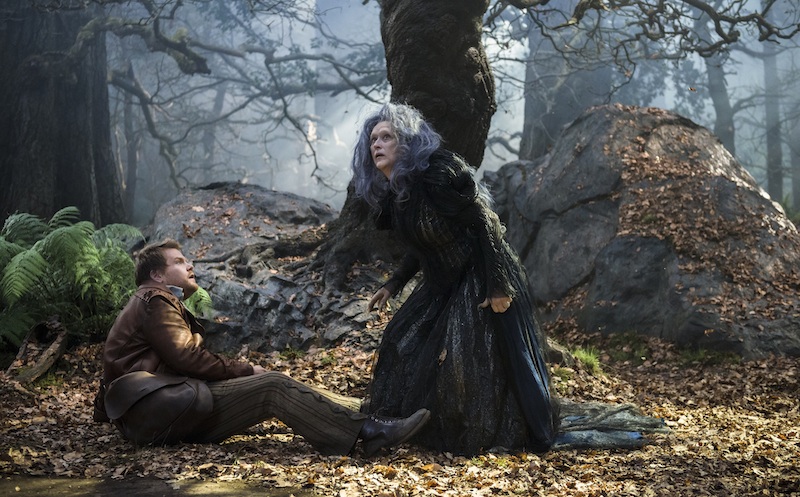
When all is said, if you’re a fan of the story, this version will provide some excellent renditions and takes that you’ll want to revisit. It’s not an ultimate telling of any sort, but it makes for a fun holiday romp.
Emmet Asher-Perrin has played Little Red Riding Hood in this show years ago, and it was honestly one of the best times she’s ever had on a stage. You can bug her on Twitter and Tumblr, and read more of her work here and elsewhere.










